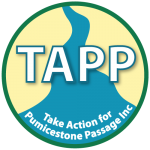Susie Chapman, Healthy Land and Water
Susie Chapman OAM is a Senior Scientist and Regional Agriculture Landcare Facilitator for Healthy Land and Water in South East Queensland based at the University of the Sunshine Coast. She has worked in integrated catchment management, collaborative climate adaptation, citizen science, coastal management and indigenous land management. In 2012 she won the Australian Government Local Landcare Facilitator/Co-ordinator award for Australia. In 2012 she was awarded an Honorary Senior Fellowship at USC and in 2019 an Order of Australia Medal for services to Environment and Conservation.
Abstract:
In 2015, Healthy Land and Water launched the Pumicestone Shellfish Habitat Restoration Project alongside Traditional Owners, community and recreational fishing groups, a local oyster farmer, Moreton Bay Regional Council, Unitywater, and the University of the Sunshine Coast (USC) to work toward restoring the Pumicestone Passage’s lost shellfish habitats to enhance fish stocks, marine biodiversity, and ultimately improve water quality in the Pumicestone Passage. The project also supported the mapping and protection of cultural heritage values associated with shellfish.
The project began with the installation of 16 reef units of various types at 3 to 5 metres depth within one hectare off Kakadu Beach, Bribie Island. These were augmented in 2018 with two additional patches (~38m2) of recycled oyster shell including one with live shell, and again in 2019 with two larger patches (~78m2) of dead shell only.
Fish assemblages at the restoration site were 3.8 times more speciose and had 16.4 and 10.7 times more harvestable fish and total fish abundance, respectively, than before restoration. The abundance of fish at the reef site meant that few differences in fish assemblages were identifiable between the six reef unit types. We found no significant change in the distribution of fish assemblages relative to the restoration site over time, thereby indicating no attraction effect of the reef, but instead an overall increase in fisheries productivity. OzFish invertebrate surveys found significant recruitment and survival of rock oyster spat and other invertebrates on reefs > 50cm, as well as evidence of anchor damage.
